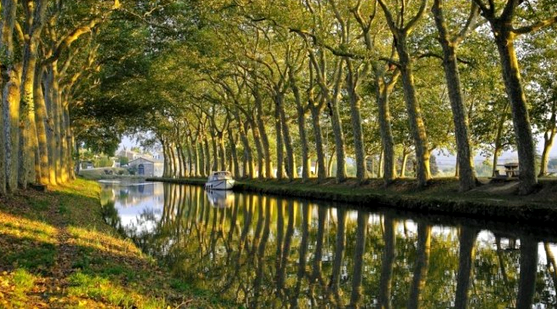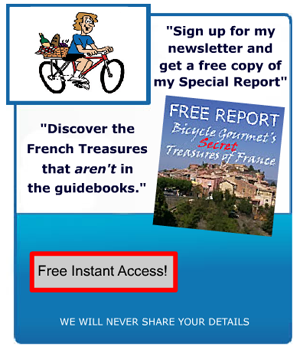Other Recent Articles
French Country Travel Life Cruises

French Country Travel Life Cruises – You can have one on a multitude of waterways. As you’ve probably suspected. all depending on how long you have, and your, ahem..shall we say:”boating style?”
Perhaps best known – the Loire – France’s longest river, former Number one cargo route for transporting everything to villages along, and the ocean at the end. Back in the day. These days, although it’s freight forwarding days haven’t ended, the Loire is largely a pleasure cruise destination. And, truth be told, there are many visual pleasures on offer à cote it’s(excuse a moi) “Her” banks.
The Loire also has it’s own canal. The canal Lateral, which glides you through tree lined banks and “Villages du Charme.” One of it’s more spectacular features being it’s passage over the Pont du Canal just ahead of the town of Briare.
The Pont du Canal, constructed by none other than Gustave Eiffel (Yes, the “Tower man”) is a watery bridge perched above the Loire. Da Bg can and hereby does confirm, that sailing over a watery bridge, with water below, is an experience that 60’s acid heads could never have imagined.
But for my money(or lack of it, to be precise) the” King o’ the hill “of French Country Travel Life Cruises, is to be had on the Canal du Midi. This waterway, not as long as the Loire, but definitely not a do-it-in-a weekend outing, is a laid back mash up of (mostly former) freight carrying canal boats. “Re-imagined” as houseboats. And pleasure cruisers of all nationalities.
You can catch the vibe in THIS VIDEO.
https://www.youtube.com/watch?v=TXD1m0-8jMI
THROW ME A BONE HERE, PEOPLE!
What are ya thinkin’?
French Country Travelling Wine
French Country Traveling Wine – well,bien sur, MANY French Wines travel. Do they not? Thanks to the well deserved reputation of the fermented grape juice available on these here shores. (Uh..that would be..DA BG shores?)
But I thought it might be instructive to share the tale of one such French Country Travelling Wine, that has (deservedly) captivated, enthralled (and one would assume) delighted, my fellow scribbler Mary Ross; who waxes elequently on this here subject from the pages of the Chicago Daily hearld:
In a nation that has canonized gastronomy since the 18th century, dining begins at home.
“Escoffier and Paul Bocuse, this is not the French chef,” according to Vincent Avenel of Domaine Faiveley, wine producers in Burgundy since 1825. “The real French chef is my mother, is my grandmother, and of course, is my wife.”
While France’s famed haute cuisine (literally “high cooking”) involves the grandiose recipes favored by Paris’s post-Revolution nouvelle riche (“newly rich”), la cuisine traditionelle familiale celebrates home cooking of ingredients sourced from local farms and vineyards.
Lucky for Avenel, that involves beef raised in famed Charolais pastures, Bresse chicken, Dijon mustard, wild mushrooms, seafood and game and the chardonnay- and Pinot Noir-based wines of Burgundy.
A Burgundian meal may begin with cured ham or Jambon Persillé, (ham and parsley terrine), escargots (snails in parsley/garlic butter) or simply Comte or Gruyere (cow’s milk cheese from nearby Jura) with Faiveley Bourgogne chardonnay (about $23.)
Keep reading, members of the ABC Club (Anything but chardonnay!) This is chardonnay as nature intends it to be — long and texturous but invigorating to the palate, with flavors of green apple, toasted almond and minerals, all balanced by bright acidity.
As le plat principal (main course), Burgundy families enjoy Poulet a la Gaston Gerard (chicken with white wine, grated Comte and mustard) a recipe created in Dijon by accident when a mustard jar fell into the casserole.
Mushrooms lovers enjoy Volailles aux Morilles (chicken breast with mushrooms) or the cross-cultural Risotto au cèpes (rice with wild mushrooms.)
Burgundy’s most famous dishes are Boeuf a la Bourguignonne and Coq au Vin, seemingly elegant titles for beef and chicken stewed in red wine.
In Burgundy, red wine means Pinot Noir.
“We went against tradition by printing grape names on some labels,” explains Avenel. “The grape is more important to people in the U.S. than anywhere else. Also, the movie “Sideways” introduced Pinot Noir to many people. We want them to know we’ve been growing Pinot Noir for centuries.”
“We don’t use expensive Burgundy to cook,” advises Avenel. “A simple Syrah from the Rhone will do for the pot.”
He also advises to practice French recipes before final service. “There may be some techniques that are new to American cooks. It’s not just tac-tac-tac!”
Like all world travelers, Avenel has introduced international dishes to his table, including Peking duck, “American steak” and smoked brisket. “Just add mushrooms and wine, brisket is perfect for Burgundy,” he proudly reports.
There’s no disputing Burgundy’s soaring prices, a function of the region’s tiny supply meeting international demand. “We have commitments for the entire vintage before the wine is even bottled,” Avenel reports.
Burgundy’s Grand Cru’s (Great Growths) are reserved for the most elegant meals, including Pigeon au Jus and Venison aux sauce Grand Veneur (venison in huntsman’s sauce.)
Read more o’ Mary HERE.
THROW ME A BONE HERE,PEOPLE!
What are ya thinkin’?
French Country Travel Life Tips
French Country Travel Life Tips. Da Bg has given you many – has he not? So, in the interests of perspective (I LIVE HERE, remember)thought it might be interesting AND informative to get some French Country Life Travel Tips from another American. The kind who DOESN’t live here. But visits a lot. His name is Jerry Lanson.
Here’s his rant( from the Huffington Post):
1. Pace yourself
Today, the 17th of our 32-day adventure, Kathy and I sat by the pool of our lovely mountain chalet, Les Skieurs in the Chartreuse Mountains above Grenoble, and read. Then we took an hour walk, stopped at an outdoor cafe for a glass of wine, had a light dinner on the deck downstairs and called it a day. It was rejuvenating after a week of too much driving and too fast a pace: two nights in the village of Sarlat in the Dordorgne, two nights in the city Montpellier and two in Ansouis in Provence’s Luberon Mountains.
As a rule, we find it’s best to stay three nights at each stop — the first day to arrive and get our bearings, the second to unwind and take in a sight or two, the third to poke around and map out our next day’s travels. Two-night stays can work, but it’s best not to bunch them as we did this week.
A series of one night stays means too much tension, too much driving and too little time to explore. As a rule, see less and stay a little longer at each stop.
2. Use maps, not a GPS
A GPS can get you from here to there, but it doesn’t tell you what you’re missing along the way. Michelin maps are the best and, of these, the yellow maps give the most detail.
3. Be open to diversions
The best moments on any vacation invariably are those that are unplanned. We spent more than an hour at Rocamadour Fermier, a lovely goat farm in the Lot countryside we didn’t know existed. Had we been hellbent on getting to the hillside town of Rocamadour, just a few miles further down the road, we’d have missed it. And despite its dramatic cliffs and photo ops, Rocamadour was a bit disappointing because of its crowds of tourists. The only crowd on the farm was the goats and geese.
4. Try your hand at the language
The French may correct you or answer your most carefully crafted French question in English. But trying to speak their language opens doors, especially outside of Paris. Here at Les Skieurs, after we had a brief chat in French with Madame Jail, the owner, she offered suggestions on where we might eat and stay in Chamonix, two stops down the road on our trip. (She also promised that next time we visit, we’ll rate a room with a balcony.) At Un Patio en Luberon, our B&B in Ansouis, conversation came out in a melange of English, French, German and Italian as guests from four countries found a way to share stories as well as a three-hour meal. On this trip, my 10th or 11th to France, we’re finding many more intermingled French and English conversations than ever before, perhaps because English increasingly is the international language, but the French remain enormously proud of their own. We keep speaking French, even when the answer comes back in English and even though we’re far from fluent.
5. Don’t overeat
This is easier said than done in this country of gastronomy. But eating full meals at lunch and dinner is tantamount to divine death (I’ll spare you the digestive details). Often we skip hotel breakfasts, saving money at a local bakery by grabbing a croissant and an espresso (these cost half of an American coffee with milk). Or on getaway days we’ll pay the $10 or $12 each for a hotel breakfast while Kathy saves enough rolls to carry us through lunch. We eat one big meal a day, either dinner or lunch, depending on where our travels are taking us. Which leads me to No. 6.
Tip No 6 (and more) can be found HERE.
THROW ME A BONE HERE,PEOPLE!
What are ya thinkin’?
